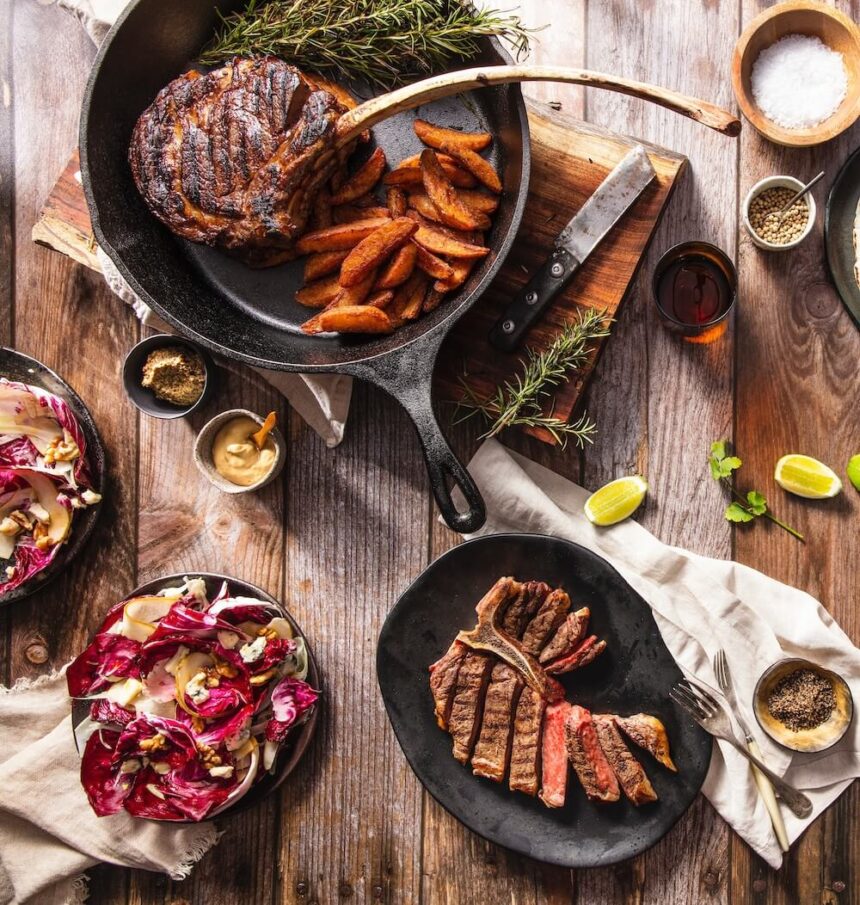There are so many diets out there, all promising health and wellness. But no matter what diet you follow, there’s a good chance you’re deficient in iron, especially if you’re a woman.
Iron deficiency is a potential problem and can make your daily life a real struggle. Keep reading to find out why iron is so important and what does low iron mean for your body.
Why Is Iron Important?
Iron is an essential chemical element that’s crucial to a healthy body. That’s because it is an important part of hemoglobin.
What’s hemoglobin? It’s a protein found in all red blood cells, and it carries and transports oxygen throughout your entire body.
You can imagine your blood like a river, and hemoglobin is a ship that carries different “goods” to different areas in your body. Every hemoglobin protein needs iron. Otherwise, it can’t carry oxygen to your body’s various systems.
8 Common Iron Deficiency Symptoms
As you can see, iron plays a very big role in your body’s overall health. And healthy blood is crucial to a healthy body. If we don’t have enough iron in our blood, our body naturally suffers because it’s not getting enough oxygen.
Here are some of the most common symptoms of iron deficiency.
Fatigue and Stamina Problems
Having a low count of healthy red blood cells means you’ll start to feel very tired and low on energy. You might be athletic and start to struggle with normal routines.
If you push through your workout like a trooper, you can experience lots of soreness in your muscles. This is because, without enough iron, it’s more difficult for your muscles to recover after workouts.
Weakness
You don’t have to be athletic like Jillian Michaels, but if you just don’t feel strong anymore, that could be one of the tell-tale signs of low iron.
Focus Problems
Blaire Morriss, a nurse practitioner at Vanderbilt Center for Integrative Health, says that neurotransmitter synthesis can be compromised if you don’t have enough iron. This leads to problems focusing and concentrating.
Lack of Interest
Because your neurotransmitter synthesis may be altered with iron deficiency, you can also feel apathetic toward things you used to feel passionate and excited about. Without iron, you’ll start to lack the luster you once felt for life.
Cold Feet and Hands
Not having enough oxygenated blood flowing down into your extremities can mean that your hands and feet will feel cold, even when it’s not wintery and chilly outdoors.
Out of Breath
Low amounts of oxygen in your blood mean you probably don’t have enough oxygen in your body, too. And even if you’re only doing simple activities, you can feel breathless.
Snow White Complexion
You may be naturally fair, but there’s a difference between having fair skin and being too pale. And it makes sense, doesn’t it? Without enough healthy, oxygenated red blood cells in your body, your skin will start to look dull and flat.
Anemia
Anemia is the condition of having an iron deficiency. Being anemic can include any or all of the issues listed above. It can also include other complications like chest pain, accelerated heartbeat, lightheadedness, getting sick often, a sore tongue, and brittle nails. If you’re anemic, you can even start to crave strange things like dirt and ice.
What Causes Iron Deficiency?
You may think that the reason why you’re iron deficient is that you’re not eating enough iron-rich foods. And that’s one very good cause.
However, there are several other potential explanations for your iron deficiency. Let’s consider three possibilities below.
Poor Diet
Iron-rich foods include squash vegetables and green leafy vegetables like spinach, kale, and chard. Iron is also found in bitter foods, like arugula. Grass-fed beef or bison, as well as eggs, provide iron, too.
If you don’t consume these foods, you might not be getting enough iron in your diet. Other food recommendations include organ meats, such as beef and chicken liver. Organ meats and dark green leafy vegetables are some of the best foods to help with iron deficiency.
Iron Malabsorption
Maybe you’re already eating plenty of iron-rich foods like those mentioned above. But if you don’t have a healthy digestive system, you might not be absorbing all the nutrients in your diet.
If that’s the case, it’s a good idea to introduce probiotics into your diet. You can do this via fermented dairy products like yogurt and kefir. Or, you can introduce fermented vegetables like sauerkraut and kimchi.
All these products are packed with probiotics, which can populate your gut with necessary bacteria that will help you absorb all the iron within your diet.
Blood Loss
If you have a regular menstrual cycle, your body loses a considerable amount of blood each month, and this can be a reason why you’re iron deficient.
Leading up to and during your menstrual cycle, it’s important to consume iron-rich foods to prevent anemic states. It may also be helpful to take an iron supplement, and this is something you can discuss with your primary care doctor.
Emotional Upsets
Do you feel chronic stress, anger, and worry? Do you have a hard time letting things go and forgiving people? According to Dr. Axe, this can empty your iron stores, too.
So, if you find yourself struggling with these emotional upsets, take time to relax, reflect and connect to yourself. This can help you decrease your stress, worry, anger, and grudges, which in turn will keep your iron stores from running out, too.
Candida
If you struggle with yeast infections and candida, this can interfere with your iron absorption. If you suspect this is a potential cause of your iron deficiency, it’s time to avoid all processed sugars and grains.
Instead, nourish your gut with healthy probiotics and iron-rich foods. And if you really need to satisfy your sweet tooth, opt for high-quality sugar substitutes, like raw, wild honey, and/or stevia.
An iron deficiency can have serious consequences on your health. Luckily, it’s easy to keep your iron stores in balance. Enjoy the right foods, take care of your emotional well-being, and nourish your gut with healthy probiotics, and you’ll keep away all the side effects of low iron.








